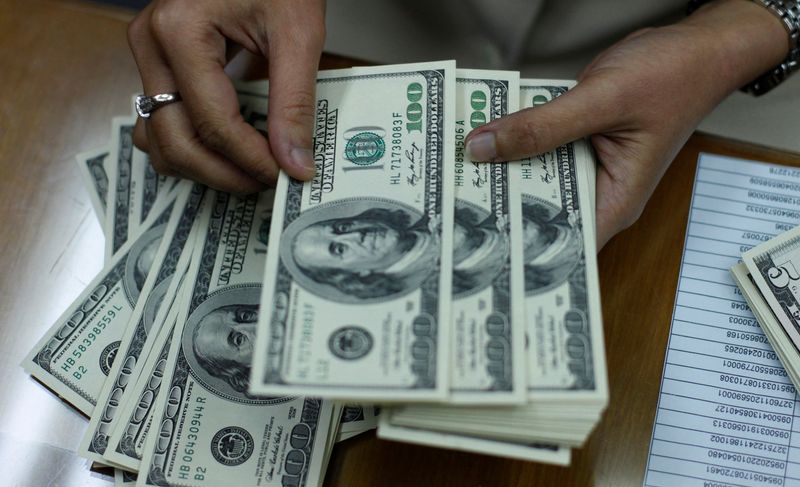Dollar unlikely to lose global dominance soon even as BRICS expand – note
2023.09.01 05:17

© Reuters. FILE PHOTO: An employee counts U.S. dollar notes at a money changer in Jakarta January 27, 2010. REUTERS/Beawiharta/File Photo
LONDON (Reuters) – The dollar is unlikely to lose its status as the global reserve currency anytime soon, even as the expansion of the BRICS group of developing nations signals another challenge to the dollar’s dominance in the world economy, BNY Mellon (NYSE:) said in a note.
Leaders of the BRICS – Brazil, Russia, India, China and South Africa – invited Iran and Argentina, Saudi Arabia, the United Arab Emirates (UAE), Ethiopia and Egypt into the club at a summit last week in Johannesburg.
One of the objectives of the BRICS is to find an alternative to the dollar, BNY noted in a report published on Friday.
It said that the additions of Iran, the UAE, Egypt and Saudi Arabia will make the new group a heavyweight in energy exports – particularly oil – suggesting a commodity basket backed by gold and oil could emerge from the new group.
An expanded bloc would hold 75% of the world’s manganese, 50% of the globe’s graphite, 28% of the world’s nickel, and 10% of . Adding Saudi Arabia, the UAE, and Iran, to the BRICS meanwhile would include three of the world’s largest oil exporters and make up 42% of global oil supply.
Still, BNY Mellon added this would not be enough to challenge the dollar’s dominance.
“The USD is unlikely to lose its global reserve status anytime soon – new currency unions should look to technology or green baskets, rather than gold- or carbon-based ones,” said Bob Savage, head of markets, strategy and insights at BNY Mellon wrote.
“The inclusion of the UAE and Saudi Arabia lift the per capita GDP and economic power, but likely conflicts with longer-term issues about the energy transition from carbon to sustainable sources,” Savage said.
“We think the most important factor for dollar use into the next decade revolves around technology instead – specifically high-end computer chips,” he added.








